Border Collies, renowned for their intelligence and agility, are a breed that requires a well-balanced diet to match their high energy levels and active lifestyle. This comprehensive guide is designed to help Border Collie owners provide the best nutrition for their furry friends, ensuring they remain healthy, vibrant, and happy throughout their lives.
Understanding the Nutritional Needs of Border Collies
Border Collies are high-energy dogs that require a nutrient-rich diet to sustain their activity levels. A balanced diet for a Border Collie should consist of high-quality proteins, essential fats, easily digestible carbohydrates, and a mix of vitamins and minerals. Proper nutrition is critical to supporting their physical and mental well-being.
Our 5 Top Foods for Border Collies
The diets were selected by our founder Justin Palmer, a certified canine nutrition expert, specifically with Border Collies in mind:
| Food | Pros | Cons |
|---|---|---|
|
|
|
|
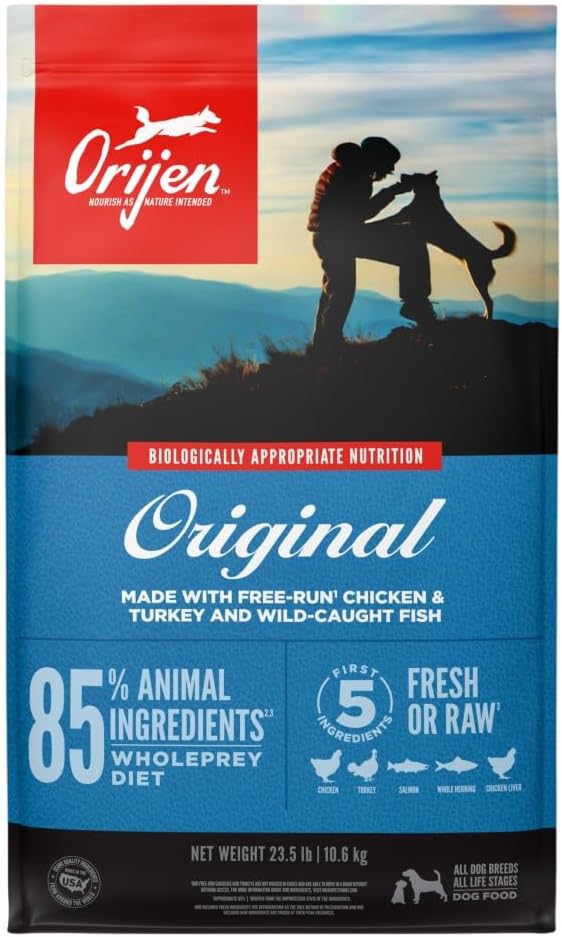
Check Today's Price on: |
|
|
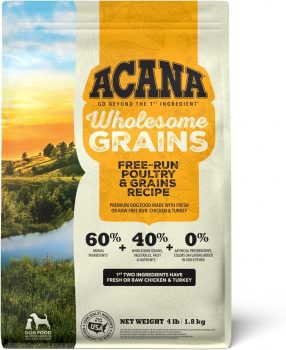
Check Today's Price on: |
|
|
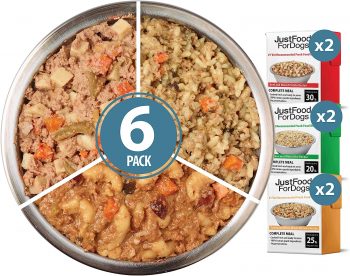
Check Today's Price on: |
|
|
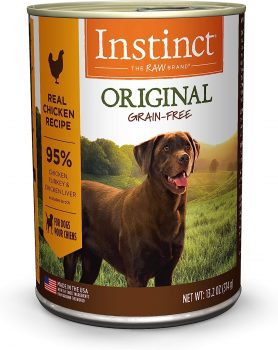
Check Today's Price on: |
|
|
High-Quality Protein: Essential for Muscle Health
Protein is crucial for maintaining the lean muscle mass of Border Collies. Look for dog food that lists real meat, such as chicken, beef, or fish, as the primary ingredient. Adequate protein intake supports their energetic nature and helps in muscle repair and growth.
Essential Fats: Supporting Energy and Coat Health
Fats, particularly Omega-3 and Omega-6 fatty acids, play a significant role in a Border Collie’s diet. They provide energy, support brain function, and help maintain a healthy coat and skin. Sources of good fats include fish oil, flaxseed, and chicken fat.
Carbohydrates for Sustained Energy: The Right Choice Matters
Carbohydrates are essential for providing energy to Border Collies. Opt for complex carbohydrates like sweet potatoes, brown rice, and oats, which offer long-lasting energy and aid in maintaining a healthy digestive system. Avoid excessive simple carbohydrates to prevent weight gain.
Vitamins and Minerals: Supporting Overall Wellness
A range of vitamins and minerals is essential for the overall health of Border Collies. Look for foods fortified with essential vitamins like A, D, E, and B-complex and minerals like calcium and phosphorus. These nutrients support immune health, bone strength, and various bodily functions.
Portion Control: Managing Weight in Border Collies
Due to their high activity levels, Border Collies need carefully managed portion sizes to prevent underfeeding or overfeeding. Feeding them two to three balanced meals a day is essential to manage their energy levels and weight. Regular exercise, along with a controlled diet, is crucial.
Special Dietary Considerations for Border Collie Puppies
Border Collie puppies have different nutritional needs compared to adult dogs. Puppy formulas rich in protein and fat and balanced for growth are crucial for their development. Feeding them small, frequent meals supports their rapid growth and high energy levels.
Wet Food vs. Dry Food: What’s Best for Border Collies?
Choosing between wet and dry food depends on your Border Collie’s preference and specific health needs. Dry food can benefit dental health, while wet food is more hydrating and often palatable. Some owners opt for a combination of both to provide varied nutritional benefits.
Healthy Treats for Border Collies: Making the Right Choices
Treats are essential to training and bonding, but choosing healthy options for Border Collies is necessary. Low-calorie treats and snacks like carrots or apple slices are good choices. Treats should only make up a small portion of their daily calorie intake.
Transitioning Your Border Collie to a New Diet
When changing your Border Collie’s diet, it’s essential to do so gradually over a week or more to avoid digestive upset. Start by mixing a small amount of the new food with the current food, gradually increasing the new and decreasing the old.
Understanding Dog Food Labels: Selecting the Best Option for Your Border Collie
Understanding dog food labels is essential for choosing the food for your Border Collie. Select products with high-quality ingredients, real meat as the first ingredient, and without unnecessary fillers. The food should meet AAFCO nutritional standards for dogs.
Homemade Diets: Are They Suitable for Border Collies?
While homemade diets can offer fresh, whole-food nutrition, they require careful planning to ensure they are balanced and meet all nutritional needs. Consult a veterinarian or a canine nutritionist before opting for a homemade diet for your Border Collie.
Hydration: Ensuring Your Border Collie Stays Well-Hydrated
Proper hydration is crucial for Border Collies. Ensure your dog has constant access to clean water, as dehydration can lead to serious health issues, particularly after intense exercise or in hot weather.
Feeding your Border Collie a balanced, nutritious diet tailored to their needs is essential for their health and happiness. Regular vet check-ups, careful monitoring of their weight and health, and adjustments to their diet as needed will help ensure your Border Collie leads a healthy, active life. Remember, every Border Collie is unique, and what works for one may not work for another. Therefore, it’s essential to consider your individual dog’s needs when planning their diet.
What Health Issues Are Border Collies Prone To, and How Can a Proper Diet Help?
Border Collies are highly energetic and intelligent, known for their agility and herding skills. While generally healthy, they are predisposed to specific health issues that can be mitigated or managed through a proper diet. This article will explore the common health concerns in Border Collies and how a balanced diet can contribute significantly to their overall health and well-being.
Obesity Management in Border Collies
Obesity is a significant health concern in Border Collies, especially if their high-energy needs are not met with appropriate physical activity. A diet controlled in calories and rich in high-quality proteins can help maintain a healthy weight. Portion control and regular exercise are also vital in managing weight in Border Collies.
Joint Health: Nutrition for Preventing Hip Dysplasia and Arthritis
Border Collies are prone to joint issues like hip dysplasia and arthritis. Diets enriched with omega-3 fatty acids, glucosamine, and chondroitin can support joint health. Maintaining a healthy weight also reduces the stress on their joints, mitigating the risk of common problems.
Skin and Coat Health: Nutritional Considerations
Border Collies often have skin allergies and sensitivities, which can affect their coat. A diet rich in essential fatty acids, particularly omega-3 and omega-6, can promote healthy skin and a shiny coat. Limited-ingredient diets or hypoallergenic foods can help in managing skin allergies.
Gastrointestinal Health: Ensuring Proper Nutrition
Border Collies may experience digestive issues, including sensitivities and allergies. A diet high in fiber and easily digestible proteins can aid in maintaining good digestive health. Probiotics and prebiotics can promote healthy gut flora, aiding digestion and nutrient absorption.
Cardiac Health in Border Collies: The Role of Diet
Heart issues, including murmurs and heart failure, can affect Border Collies. A diet low in sodium and rich in heart-healthy nutrients, such as taurine and omega-3 fatty acids, can support cardiovascular health. Regular veterinary check-ups are essential for early detection and management.
Preventing Collie Eye Anomaly Through Nutrition
While genetics primarily cause Collie Eye Anomaly, maintaining overall health through diet can help support eye health. Antioxidants such as vitamins E and C and nutrients like lutein and beta-carotene can support eye health. Including these nutrients in their diet can help maintain good vision.
Addressing Epilepsy in Border Collies with Diet
Epilepsy is a concern in Border Collies, and while diet cannot cure it, it can help manage seizures. A ketogenic diet, high in fats and low in carbohydrates, has been shown to help control epilepsy in some dogs. Consult with a vet for advice on managing epilepsy through diet.
Nutritional Support for Hypothyroidism
Hypothyroidism can occur in Border Collies, affecting their metabolism. A diet that supports thyroid health, including iodine-rich foods and controlled calorie intake, can be beneficial. Regular veterinary monitoring is essential for managing this condition.
The Importance of a Balanced Diet for Border Collie Health
A balanced diet for a Border Collie should include the right balance of proteins, fats, carbohydrates, vitamins, and minerals. This balance supports their overall health and can mitigate the risks of breed-specific health issues.
Conclusion: The Role of Diet in a Border Collie’s Health
Border Collies are prone to several health issues; a proper diet can significantly prevent or manage these problems. Tailoring your Border Collie’s diet to their specific health needs can dramatically enhance their quality of life. Regular veterinary check-ups and carefully considering dietary choices can help ensure your Border Collie remains healthy and happy.
Frequently Asked Questions About Feeding Border Collies
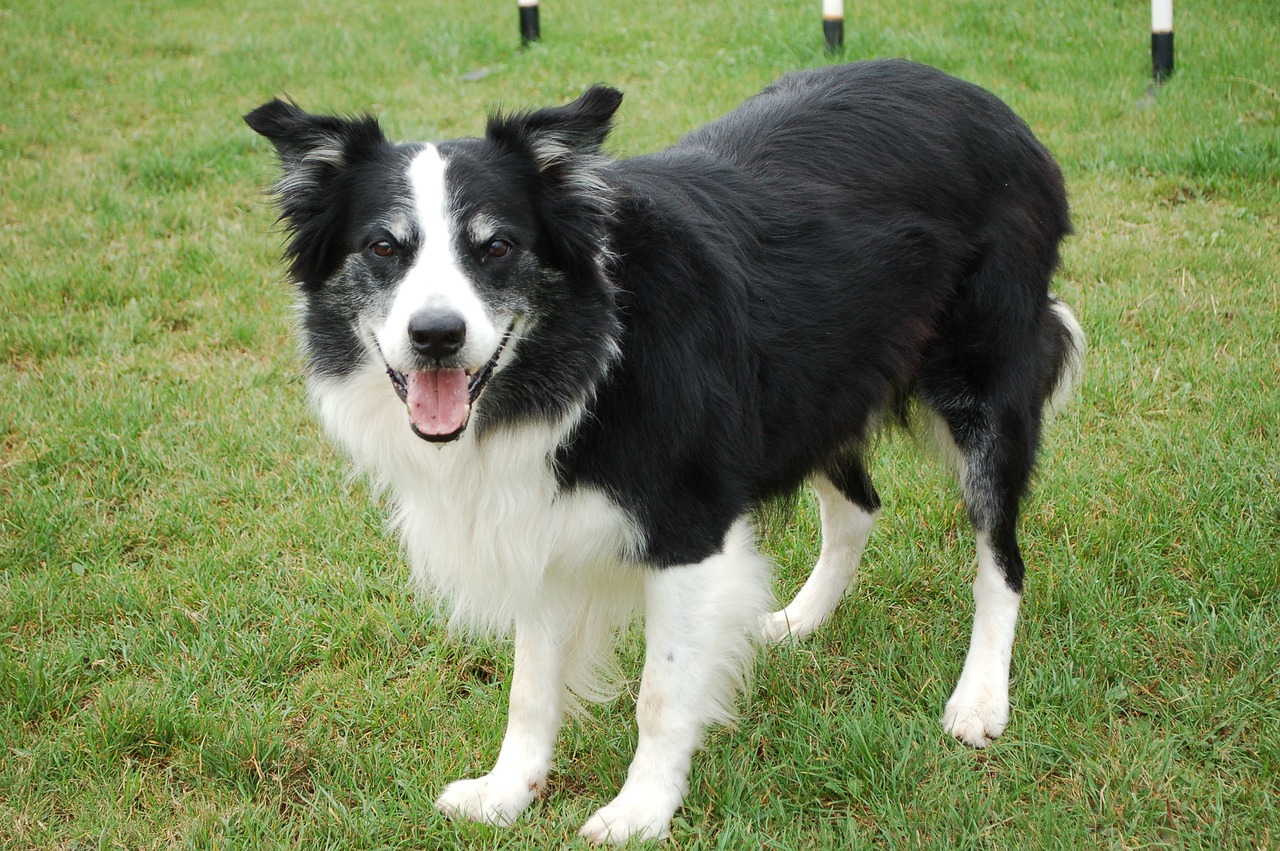
1. What is the best type of food for a Border Collie?
The best food for a Border Collie is high-quality dog food, specifically formulated for active breeds, rich in proteins and moderate fats. Look for foods with real meat as the primary ingredient and limited fillers like corn or wheat. Matching the food to your Border Collie’s age, activity level, and specific health needs is essential.
2. How much should I feed my Border Collie?
The amount to feed a Border Collie varies based on their age, size, and activity level. Generally, adult Border Collies need about 2 to 3 cups of dry food per day, split into two meals. Always follow the feeding guidelines on the food package and adjust as needed based on your dog’s health and activity level.
3. Can Border Collies eat a grain-free diet?
Border Collies can eat a grain-free diet, but it’s unnecessary unless they have specific allergies or sensitivities. Ensure that the grain-free diet is balanced and provides all the essential nutrients. Consult with your vet before making significant changes to your dog’s diet.
4. Are there any foods that are harmful to Border Collies?
Several foods harm Border Collies, including chocolate, grapes, raisins, onions, garlic, and xylitol. Avoiding these foods and being cautious about human foods you share with your pet is essential.
5. How often should I feed my Border Collie?
Feeding your Border Collie twice a day is generally recommended. This helps to manage hunger, maintain stable energy levels, and help prevent conditions like bloat.
6. Is it okay to give my Border Collie human food?
While some human foods are safe for Border Collies in moderation, others can be harmful. Secure options include cooked lean meats, fruit, vegetables, and plain rice. Avoid toxic foods and consult your vet about secure human food options.
7. Should I give my Border Collie supplements?
Supplements can benefit Border Collies, especially those with specific health concerns like joint issues or skin allergies. However, they should only be given under a veterinarian’s advice to ensure they are necessary and safe.
8. How can I tell if my Border Collie is overweight?
An overweight Border Collie may have a less visible waist and rib definition. You should be able to feel their ribs without a thick layer of fat. Consult your vet for a proper evaluation and diet plan if your Border Collie is overweight.
9. What is the best way to transition my Border Collie to a new food?
Transition your Border Collie to new food gradually over 7-10 days. Start by mixing a small amount of the fresh food with their current food, gradually increasing the fresh food and decreasing the old. This helps prevent digestive upset.
10. Can Border Collies be vegetarians?
While dogs can survive on a vegetarian diet, it’s not ideal for Border Collies, as they thrive on a diet that includes high-quality animal proteins. If considering a vegetarian diet for health or ethical reasons, consult a vet to ensure all nutritional needs are met.
11. What are the signs of food allergies in Border Collies?
Signs of food allergies in Border Collies include itching, skin rashes, ear infections, and gastrointestinal problems like diarrhea and vomiting. If you suspect your Border Collie has a food allergy, consult a veterinarian for proper diagnosis and management.
12. Is wet or dry food better for Border Collies?
Choosing between wet and dry food depends on your Border Collie’s preferences and health needs. Dry food benefits dental health, while wet food can be more palatable and hydrating. Some owners opt for a mix of both to balance benefits.
13. How can I prevent my Border Collie from eating too fast?
To prevent your Border Collie from eating too fast, consider using a slow feeder bowl, dividing their meals into smaller portions, or feeding them using interactive food puzzles. Eating slowly is vital for digestion and can reduce the risk of bloat.
14. Can I feed my Border Collie a raw diet?
Feeding a Border Collie a raw diet can be done, but it requires careful planning to ensure it’s balanced and safe. Raw diets have risks like bacterial contamination and nutritional imbalances, so consult a vet before starting a raw diet.
15. How do I know if my Border Collie’s diet is nutritionally balanced?
A nutritionally balanced diet for a Border Collie should include the right proportions of protein, fat, carbohydrates, vitamins, and minerals. Look for dog foods that meet AAFCO guidelines and consult your veterinarian to ensure the diet meets your dog’s needs.
 Check Today's Price on:
Check Today's Price on: Toledo, United States.
Toledo, United States.